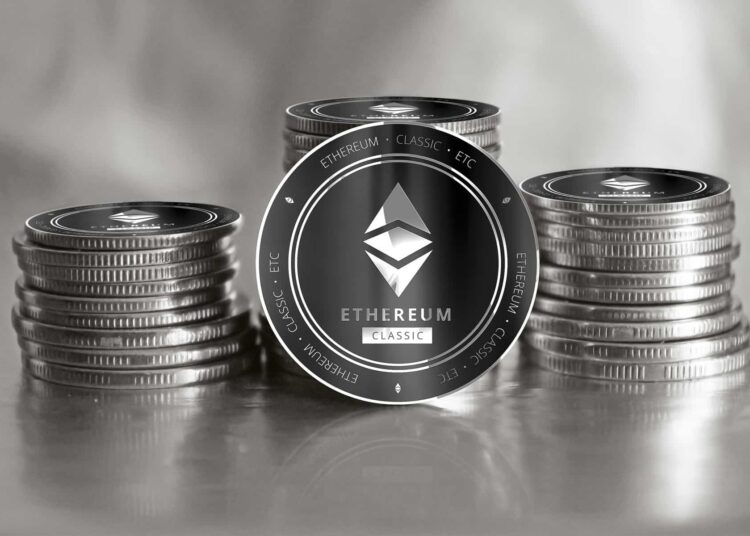- Vitalik Buterin introduces EIP-7702 aiming to elevate the capabilities of externally owned accounts (EOAs) by temporarily integrating smart contract features.
- This proposal has the potential to revolutionize user experiences on Ethereum, making it more accessible and secure, thus accelerating its adoption.
Vitalik Buterin, co-founder of Ethereum, alongside collaborators Sam Wilson, Ansgar Dietrichs, and Matt Garnett, has introduced Ethereum Improvement Proposal (EIP) 7702. This proposal seeks to enhance the functionality of Ethereum’s externally owned accounts (EOAs) significantly. EIP-7702 intends to temporarily integrate smart contract capabilities into EOAs, presenting a groundbreaking concept that could redefine user interactions within the Ethereum network.
Ethereum’s account model comprises two main types: externally owned accounts (EOAs) and contract accounts. EOAs, controlled by private keys, possess limited functionalities and security features, limiting their use in more intricate transactions typically handled by smart contracts. Besides, Buterin has also shared a unique approach to crypto security, as reported by Crypto News Flash.
🚀 Vitalik Buterin unveils Ethereum’s game-changer: EIP-7702 proposes integrating smart contract functionalities into EOAs, revolutionizing user interactions on the network. 🌐
This transformative leap bridges the gap between simplicity and versatility, promising a seamless… pic.twitter.com/MUFsJOxsmv
— Collin Brown (@CollinBrownXRP) May 8, 2024
Hayden Adams, founder of Uniswap, highlighted that EIP-7702 introduces a new option in comparison to EIP-3074, previously under consideration for inclusion in the upcoming Pectra upgrade. Notably, EIP-7702 now incorporates quantum resistance and improved compatibility with ERC-4337.
The primary objective of EIP-7702 is to ensure compatibility with ERC-4337, a broader standard for smart contracts. Moreover, the proposal notes: “This EIP is designed to be very forward-compatible with endgame account abstraction, without over-enshrining any fine-grained details of ERC-4337″.
Account abstraction empowers wallets to function similarly to smart contracts, offering a range of advanced features such as multi-factor authentication, wallet social recovery, and the freedom for users to engage in transactions with any token.
As the Ethereum community assesses the proposal, EIP-7702 also has the potential to reshape the implementation of account abstraction in forthcoming network upgrades.
Understanding the Working of EIP-7702
The novel transaction type proposed in EIP-7702 incorporates fields for contract code and a signature, offering functionalities akin to those proposed in EIP-3074, including batch and sponsored transactions. This approach circumvents the necessity for introducing new opcodes and undergoing associated hard forks. Instead, it employs callable functions—verify for AUTH and execute for AUTHCALL—that seamlessly integrate further with the current Ethereum infrastructure.
This proposal also enables externally owned accounts (EOAs) to transiently transform into contracts, facilitating their inclusion in ERC-4337 bundles in a manner that aligns with the existing EntryPoint.
Highlighting the importance of EIP-7702, Jarrod Watts, a developer relations engineer at Polygon, said: “Vitalik just proposed EIP-7702. It’s one of the most impactful changes Ethereum is going to have… EVER.”
Watts added: “EIP-7702 represents a fusion of the flexibility of smart contracts with the foundational security model of EOAs. It’s a significant stride towards making Ethereum more accessible and secure for everyday users.”
Vitalik just proposed EIP-7702.
It’s one of the most impactful changes Ethereum is going to have… EVER.
So, here’s everything you need to know about how it works and how we got here:
— Jarrod Watts (@jarrodWattsDev) May 8, 2024
Should EIP-7702 be embraced, it has the potential to revolutionize user interactions with decentralized applications (dApps) and asset management on the Ethereum network. By empowering externally owned accounts (EOAs) to temporarily harness the advanced functionalities of smart contracts, EIP-7702 also offers the promise of a smoother, more secure user experience. This enhancement could further propel the adoption of Ethereum’s advanced capabilities at an accelerated pace.
Credit: Source link












































